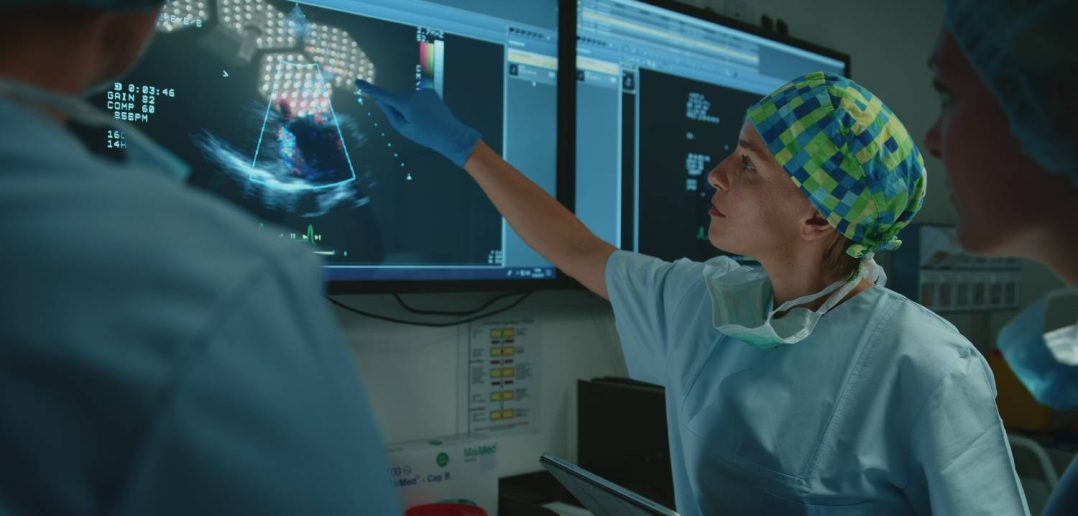Another promise of innovation and advancement? Not in 2025.
The hype of market disruption and transformation might be the content that catches attention, but it’s not always the most accurate description of the industry.
For far too long, industry experts have praised the ideas of future-forward growth and promised year-over-year advancements destined to shake the landscape. Predictions of swift, sweeping change often flood the conversation, but evolution is often gradual and deliberate in industries shaped by regulation and public trust.
This year, we’re not going down the route of hypothetical ideals.
As we enter 2025, the trajectory is clear. Health care and life sciences are not experiencing sudden disruption but are steadily laying the groundwork for transformation. The coming year will be defined by the continued integration of health systems, the modernization of technology and the increasingly active role of patients and consumers in directing their care.
A unified industry approach
The lines that once separated health care payers and providers from pharmaceutical companies and life sciences innovators have been increasingly blurred. Over the last few years, we’ve witnessed these sectors move toward a more collaborative framework – we’ve even highlighted the importance of convergence in prior predictions. In 2025, this convergence is no longer experimental – it is foundational to how these industries operate.
Pharmaceutical companies and health care providers are working more closely than ever, using data and shared insights to drive innovation in patient care and treatment development.
For patients, this means more cohesive health experiences where care delivery and medical advancements are intertwined. The challenge remains: How can companies across these traditionally siloed spaces work together seamlessly? Interoperability – ensuring that data flows freely and securely across systems – is still one of the most significant barriers, and overcoming it will be a critical focus in the year ahead to move towards tangible convergence.
Technology takes center stage
Despite our extraordinary advances, many parts of the health care technology stack remain fragmented and outdated. In 2025, the need for a digital overhaul will become unavoidable. Health care organizations, from hospitals to research labs, must reimagine their infrastructure, embracing solutions that modernize and integrate the various systems on which they rely.
But even with the right tools, financial investment will be paramount. For the industry to benefit from the promise of technologies such as AI, machine learning and predictive analytics, substantial resources must be directed toward infrastructure, prioritizing data integrity, security and usability.
Health care organizations and pharmaceutical companies will explore new ways to implement AI-driven insights at every level, from patient care personalization to faster drug development cycles. Rather than seeing news reports and conference mainstages focused on the “why” of implementing AI and GenAI tools, we’ll shift to hearing about the “how,” focusing on the stories of success – and failure – and collectively learning from the outcomes of investing in advanced technologies.
The empowered health care consumer
It is easy to point out that one of the most transformative trends shaping 2025 is the continued shift in patient behavior. Health care consumers are no longer satisfied with being passive recipients of medical services. While this has been raised repeatedly, the next calendar year will be the make-or-break period for consumer expectations and company success.
Patients demand more control, transparency and convenience in their care. This shift is reshaping the industry as patients expect health care to adopt some of the service models and customer-centric practices seen in other industries. We’ll see this manifest in the further adoption of telemedicine, more investment in retail health care services, and a continued push toward decentralized models for clinical trials.
Striking a balance between innovation and responsibility
While the industry embraces technology, the importance of ethical considerations cannot be overstated. AI, automation, and other advanced tools hold incredible promise, but their rapid adoption must be tempered with responsible use. In 2025, ethical questions surrounding AI will be at the forefront, especially regarding privacy, bias in algorithms and ensuring equitable outcomes for all patients.
Companies will need to demonstrate that their technologies are innovative, transparent and trustworthy. The health care sector must navigate these ethical waters carefully, ensuring that new solutions enhance patient care without compromising fairness or privacy. As technology becomes more deeply embedded in every facetof health care, these considerations will only grow in importance.
What to expect in 2025
The year ahead will not see the dramatic shifts that headlines often predict, but it will be a year of important steps forward.
Convergence between health care and life sciences will become more deeply ingrained. Technology upgrades and the financial investments needed to make them real will no longer be optional but essential as organizations look to integrate, streamline and secure their digital infrastructures.
And patients, more empowered than ever, will continue to drive the shift toward personalized, accessible and transparent health care.
2025 is about building a sustainable future for the industry.
Through thoughtful innovation and collaboration, we are on the path to creating a more connected, patient-centered and equitable health care system – but only if we move away from hypothetical talking points and actively put our investments into action.

